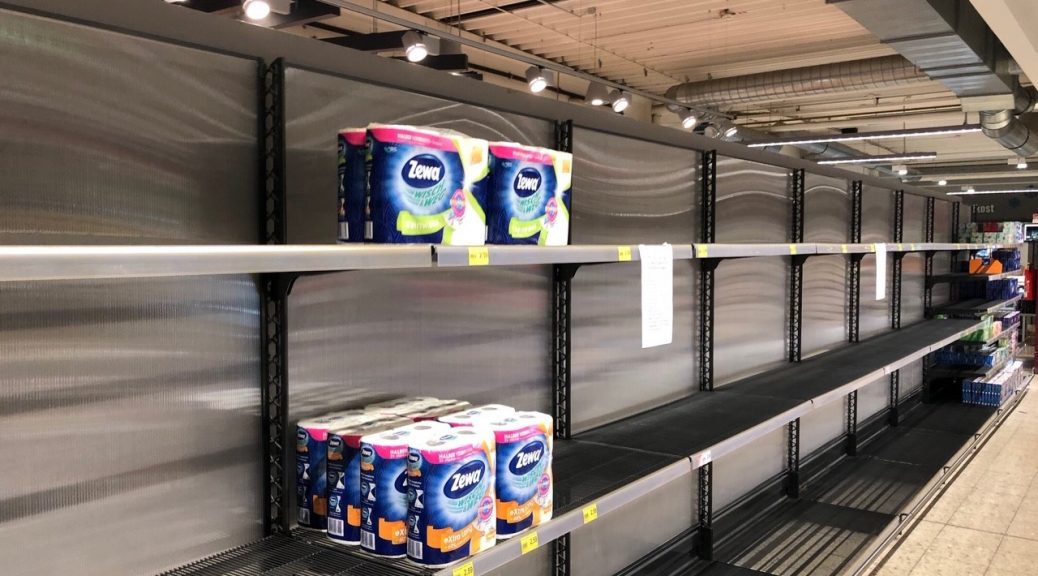
Antitrust law in times of crisis = crisis of antitrust law?
The virus challenges everything – competition law is no exception to that rule. Marcel Nuys and Florian Huerkamp give a first account of the situation in antitrust law in our blog. And while nothing is safe these days, one thing is: This is not the last time we have to deal with competition law in times of the Covid-crisis.
The famous and influential German Supreme Court Justice Ernst-Wolfgang Böckenförde spent a good amount of his academic work on the question how legal systems should and can deal with cases of ultimate emergency (the infamous “Ausnahmezustand”). Unlike others Böckenförde took the clear position that even in the Ausnahmezustand there is no “carte blanche” for arbitrary action that is no longer bound by legal principle. While, of course, Böckenförde was not so much concerned with the nitty-gritty lowlands of antitrust his basic insight that extreme situations impact every part of the legal order fundamentally is – as we must currently witness in this severe crisis – also true for our field of interest.
Merger Control in times of Covid
Within the strictly time-bound decision frame-work under merger control rules, authorities and notifying parties are confronted with the procedural implications of the current pandemic: How to keep the short and strict timelines in the face of severe constraints of day-to-day work? Many authorities, e.g. the German Federal Cartel Office or the French Autorité de la Concurrence, have reacted by trying to reduce the amount of newly notified transactions. They encourage undertakings to rethink whether their notification needs to be submitted now or can wait. While this might be a pragmatic solution it is not a legal one: Under most merger control regimes the clock for the authorities starts ticking once a complete notification is formally filed. Antitrust authorities usually have – from a purely legal perspective – no legal means to stop undertakings from filing a transaction and thereby triggering the deadline for clearance. Then again, try to find a lawyer who has filed a notification although the authority “discouraged” him from doing so. If you find him or her – don’t hire him/her!
A “chance” for closer cooperation between competitors?
Even more tricky is the question of how to deal with coordination between independent undertakings in times of an existential crisis. What is the right balance that needs to be struck between competition and attempts to master repercussions of a unique threat for a branch of the economy? Take the following example: Two arch-rivals in the airline industry coordinate their routes. Five weeks ago this would have been a clear cut case of an infringement of the principles of Article 101 TFEU or comparable national provisions. Nowadays the Norwegian Government takes the view that at least for period of three months it will be allowed for airlines to coordinate their behaviour.
In the same vein is the reported practice of retailers to exchange information and allocate particularly needy customers among each other to ensure that deliveries can be made in time. Reportedly, large retailers in the UK have asked to waive competition rules to allow them to coordinate their behaviour in times of crisis. Just recently, Andreas Mundt – head of the German Federal Cartel Office – is quoted as saying: “Competition law permits extensive cooperation between companies if there are good reasons for this – which is the case in the current situation”. Similarly, the Greek competition authority notes that it will not take action against practices which relate to the imposition of maximum resale prices or recommended prices on supply contracts and distribution agreements.
Softened antitrust rules during a crisis – unheard of?
Measures to somehow soften antitrust laws are not totally unprecedented and some have at least been discussed in the light of potential panics in the UK in the wake of Brexit.
One actual example prior to Brexit was the permission of communication between fuel companies in the UK to allocate supplies, including the development of a voluntary protocol between industry associations and companies to improve fuel distribution and minimise disruption when panic buying of petrol led to fuel shortages in 2012.
Crisis – a time to stay vigilant
However, competition law authorities throughout the world, will certainly keep in mind that relaxing the usual competition standards bears also risks. In particular in times like these, customers are vulnerable and – in fear of empty store shelves – willing to pay excessively high prices (even for things like toilet paper).
The only institution that can save them from exploitation is functioning competition. Consequently many competition authorities, eg the Portuguese watchdog, have already warned companies not to abuse the current situation. Likewise the Greek regulator stresses that it will continue to examine hardcore vertical restraints which are brought to its attention, such as resale price maintenance (establishing a fixed or minimum resale price or level), and that it is prepared to impose fines on undertakings that apply such practices.
Also the past shows that – even in difficult times – competition law authorities are not willing to give companies carte blanche.
One example is related to the 11 September attacks in 2001. The industry then faced serious issues around maintaining insurance for airlines. The insurance structures that were then set up by various industry players were potentially in breach of competition law. The EU Commission opened investigations and closed them only after concessions were offered by the undertakings.
Rumour has it that the EU Commission is already inquiring which national authority has taken steps to relax the usual competition law standards.
The antitrust enforcers, therefore, seem to keep Böckenförde’s credo in mind – no “carte blanche” in times of crisis.


Dr Marcel Nuys is partner, Dr Florian Huerkamp is counsel with Herbert Smith Freehills LLP.
One thought on “Antitrust law in times of crisis = crisis of antitrust law?”